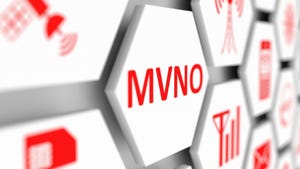Shaping Africa’s digital future
MTN executive Serame Taukobong set the agenda for the Africa Com conference yesterday morning when he said the discussion has moved on from connecting Africa to how to connect Africa to the rest of the world and how the world can connect to Africa. It is a sentiment that has and will be echoed by several big names across the two days of the conference.
November 10, 2011

MTN executive Serame Taukobong set the agenda for the Africa Com conference yesterday morning when he said the discussion has moved on from connecting Africa to how to connect Africa to the rest of the world and how the world can connect to Africa. It is a sentiment that has and will be echoed by several big names across the two days of the conference.
When I sat down to talk with Mark Simpson, chief executive officer of subsea cable carrier Seacom, he said that perceptions in Africa were changing quickly as cables were landing and connectivity was coming to the continent. But more significantly, expectations were also changing quickly as this connectivity was being used.
For a start, the extra capacity is cultivating an ecosystem where more second and third tier service providers and other new businesses can survive. As Marc Rennard, Orange Group’s EVP for Africa, Middle East and Asia, pointed out yesterday morning, such competitive pressures are forcing the operators to develop their offerings, while quality of service is becoming a main differentiator.
Seacom’s Simpson also said that the rapid growth in its wholesale business, which naturally follows subsea connectivity to a territory, was encouraging the development of infrastructure in Africa. The keynote panellists on day one of the event, from MTN, Orange and Vodacom, spoke about the critical need for partnerships with governments and the private sector, and the opportunities for education, society and communities afforded by connectivity and Simpson said his company was experiencing lots of interaction with the government on initiatives to enable ICT in the region as the application of technology begins to develop much more quickly.
Keith Boyd, director of sales and marketing at tower sharing firm Eaton Towers spoke along similar lines when discussing the rapid expansion of operator infrastructure plans in the region, saying that leading operators will building out thousands of new points of presence every year now. And these are not all cellular base stations. The market has reached a level of maturity where operators are now looking at increasing in-building coverage with femtocells and picocells or looking at offload strategies such as wifi.
Johan Dennelind, CEO of Vodacom International, spoke about the changes the operator was seeing in its subscriber base as data usage became more commonplace among both 2G and 3G users. This phenomenon has the potential to open up new business models for operators in emerging markets, with Vodacom seeing the successful M-PESA mobile money initiative move beyond the realm of a value added service and become a whole new business that can deliver revenues.
By co-locating the Africa Com conference with Africa Cast, it’s clear there is a growing appetite for Africa specific content as well as a need for partners to bring content from elsewhere in the world to Africa. The keynotes today, which feature presentations from technologist and blogger Erik Hersman, David Weber, COO of MXIT, and Neil Ahlsten, Google’s head of new business development in Africa, will highlight the innovations being made that are shaping Africa’s digital future.
Read more about:
DiscussionAbout the Author
You May Also Like










.png?width=300&auto=webp&quality=80&disable=upscale)


_1.jpg?width=300&auto=webp&quality=80&disable=upscale)